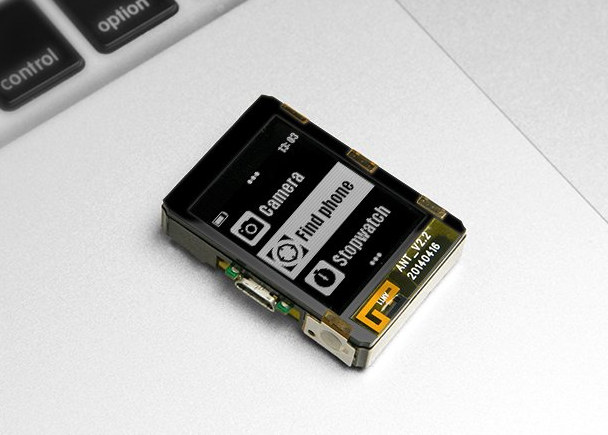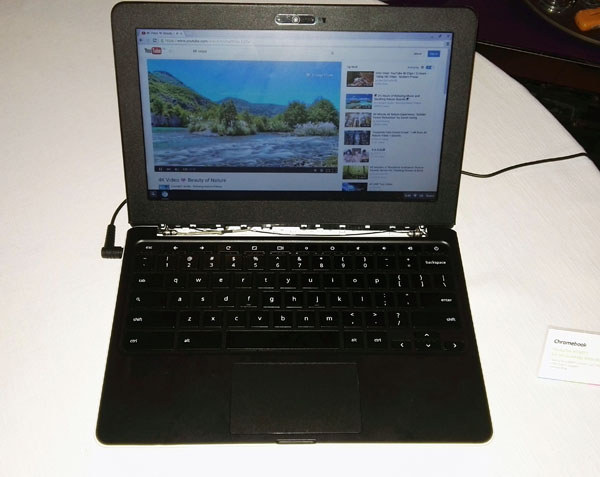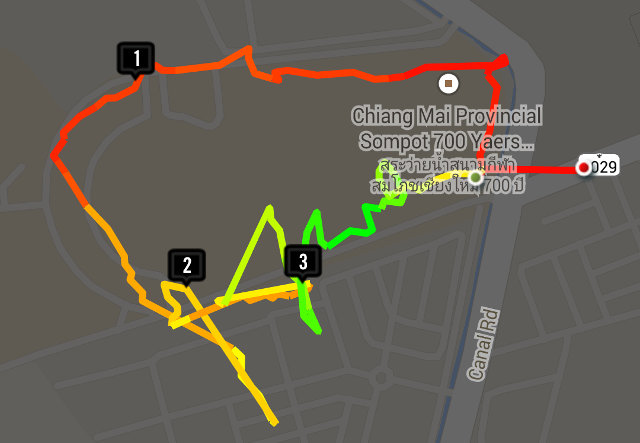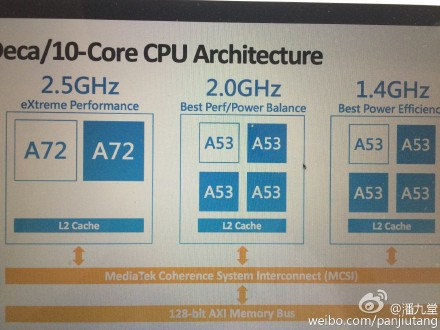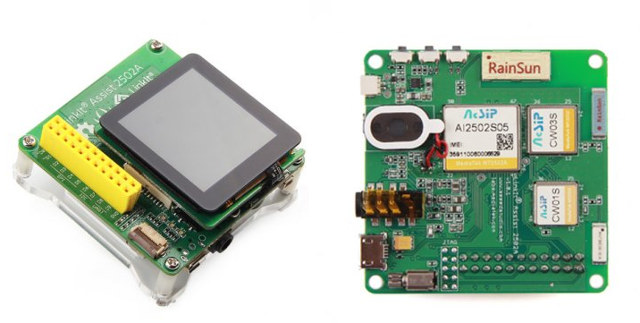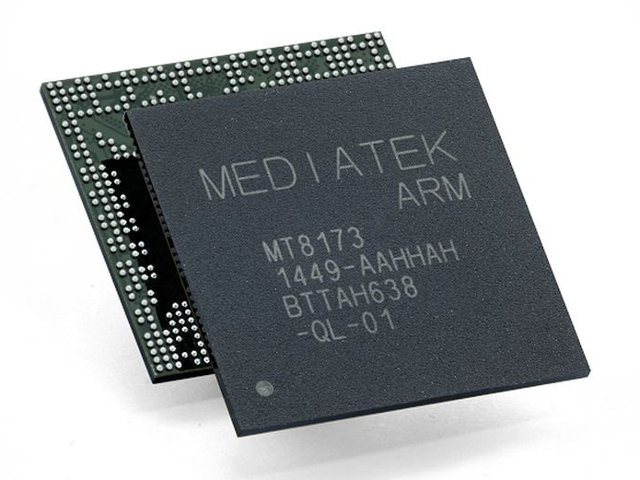Linus Torvalds released Linux Kernel 4.2 last Sunday: So judging by how little happened this week, it wouldn’t have been a mistake to release 4.2 last week after all, but hey, there’s certainly a few fixes here, and it’s not like delaying 4.2 for a week should have caused any problems either. So here it is, and the merge window for 4.3 is now open. I already have a few pending early pull requests, but as usual I’ll start processing them tomorrow and give the release some time to actually sit. The shortlog from rc8 is tiny, and appended. The patch is pretty tiny too. Go get it, Linus Some notable changes made to Linux 4.2 include: File systems New features for F2FS including per file encryption CIFS support SMB 3.1.1 (experimental) Cryptography – Jitter Entropy Random Number Generator, Chacha20 stream cipher and Poly1305 authentication (RFC7539),New RSA implementation. See lwn.net […]
Mixtile GENA is a Wearables Development Kit Inspired by Pebble Watch
The first Pebble watch with a black and white e-Ink display and Bluetooth for smartphone connection launched in 2012 via Kickstarter, and it became one of the most successful crowdfunding campaigns so far. The watch can now be purchased for $100, but Focalcrest, a startup based in Shenzhen, designed Mixtil GENA development kit with similar features and user interface, although with different electronics components, that goes for $34 on Tindie. Mixtile GENA specifications: Processors Mediatek MT6260 ARM7EJ-S processor @ 364 MHz with 8MB RAM and 16MB Flash Nordic Semiconductor nRF51822 ARM Cortex M0 Bluetooth Smart SoC External Storage – micro SD card slot (Up to 8GB) Display – “Energy-saving” reflective LCD Connectivity – Bluetooth 4.0 LE USB – micro USB 2.0 port Sensor – Gravity sensor Misc – Up, Down, Enter and Power/Return buttons Battery – 270 mAh/3.7V Lithium-ion battery (4 to 5 days on a charge for typical usage) […]
Chromebooks with Mediatek MT8173 Cortex A72 Showcased at Computex 2015
Chromebooks were originally all based on Intel processor, but eventually ARM based Chromebooks got launched starting with Samsung Exynos, more recently Rockchip RK3288, and soon we’ll have Mediatek Chromebooks based on their latest Cortex A72 + A53 processor. The platform is still in development, but some prototypes are being shown up at Computex 2015 in Taipei. The full specs are not available but we do know the laptop features MT8173 SoC with 2x Cortex A72 cores, 2x Cortex A53 cores, and a PowerVR GX6250 GPU. NotebookItalia is at Computex and in their short video below with can hear the spokesman claiming support for 4K video playback, 2K display, and the presence of Type C USB port that can be used to connect device, but also charging the laptop. Mediatek Chromebooks should offer about twice the single thread performance as Rockchip RK3288 devices, thanks to the use Cortex A72 cores instead […]
Improve Mediatek MT6752 GPS Accuracy by Turning WiFi Off?
Mediatek smartphones used to have a terribly slow GPS fix, and it would often take over 10 minutes to get a fix if any, and one workaround was to enable Mediatek EPO. However, in my Iocean M6752 review, I found out GPS fix was not super fast even without Internet connection, but accuracy is quite a disaster as Nike+ Running screenshot below clearly shows. I’m running around a stadium so the shape should be elliptic…, but data point are all over the place. Since the review, I’ve kept using the smartphone with Nike+ Running, and each time it’s a disaster, and once the app even reported a 81 km for an actual 10 km run… I’ve also used Google Maps once or twice, and found accuracy to be poor as well. However, I usually leave Wi-Fi on, and for some reasons today, I decided to turn Wi-Fi off before driving […]
Mediatek Helio X20 Processor to Features 10 Cores in Three Clusters
ARM first announced big.LITTLE processing on 2011, and since then we’ve seem several mobile processors providing two CPU clusters with “big” cores such as Cortex A15 or A57 and “LITTLE” core such as Cortex A7 and A53 to optimize performance and power consumption. With its latest Helio X20 (MT6797), Mediatek brings TINY.medium.huge processing with the first mobile processor using three CPU clusters, although a 3-level architecture has also been used before in Dhanush wearables SoC. The three clusters are divided as follows: TINY – Four ARM Cortex A53 core @ up to 1.4 GHz for best power efficiency medium – Four ARM Cortex A53 cores @ up to 2.0 GHz for a good performance / power balance huge – Two ARM Cortex A72 cores @ up to 2.5 GHz for maximum performance All three clusters are linked together and the memory bus via Mediatek Coherence System Interconnect (MCSI). Mediatek claims their […]
Mediatek LinkIt Assist 2502 Open Source Hardware Board Targets Wearables and IoT Applications
After LinkIt ONE, Mediatek Labs has introduced a new IoT development kit based on their Aster M2502 ARM7 processor with LinkIt Assist 2502 comprised of AcSiP MT2502A IoT SiP Core module, a 802.11b/g/n module, a GNSS module, and an exchangeable 240×240 16-bit color capacitive touch LCM Board. The AcSiP module can also be purchased separately, so you could use LinkIt Assist 2502 board for early development, because moving to your custom hardware based on AcSiP MT2502A module. LinkIt Assist 2502A specifications: MCU – AcSiP AI2502S05 module with MT2502A (Aster) ARM7 EJ-STM processor @ 260MHz, 4MB RAM, 16MB flash Display – 240×240 LCD module; 16-bit color depth; transflective; based on ST7789S driver IC. Connectivity Wi-Fi 802.11 b/g/n via AcSiP CW01S module based on MT5931 SoC Bluetooth 2.1 SPP and 4.0 GATT dual mode (part of MT2502A) GPS via AcSiP CW03S module based on MT3332 chip supporting GPS, GLONASS, and BeiDou. GSM […]
Mediatek MT8173 is a big.LITTLE Cortex A72 / A53 Quad Core Processor for Tablets
Mediatek MT8173 first showed up in the Linux kernel as a quad core Cortex A57 / A53 processor, but now that Mediatek has officially announced the processor, it turns out the Cortex A57 cores are actually the new Cortex A72 cores, with a similar architecture, but more powerful, about 1.8 times faster. Key features listed by the company: Processor – Heterogeneous 64-bit Multi-Core big.LITTLE architecture up to 2.4GHz featuring ARM Cortex-A72 and ARM Cortex-A53 64-bit CPU. Big cores and LITTLE cores can run at full speed at the same time for peak performance requirement GPU – Imagination PowerVR GX6250 GPU with support for OpenGL ES 3.1, OpenCL. Performance: 350Mtri/s and 2.8 Gpix/s. Display Support WQXGA display (2560×1600) up to 60 Hz with TV-grade picture quality enhancement. Up to 120 Hz mobile display for other resolutions. HDMI and Miracast support for multi-screen applications Video – Ultra HD 30fps H.264/HEVC(10-bit)/VP9 hardware video […]
Linux 3.19 Release – Main Changes, ARM and MIPS Architectures
Linus Torvalds released Linux Kernel 3.19 yesterday: So nothing all that exciting happened, and while I was tempted a couple of times to do an rc8, there really wasn’t any reason for it. Just as an example, Sasha Levin used KASan and found an interesting bug in paravirtualized spinlocks, but realistically it’s been around forever, and it’s not even clear that it can really ever trigger in practice. We’ll get it fixed, and mark it for stable, and tempting as it was, it wasn’t really a reason to delay 3.19. And the actual fixes that went in (see appended shortlog) were all fairly small, with the exception of some medium-sized infiniband changes that were all reverting code that just wasn’t ready. So it’s out there – go and get it. And as a result, the merge window for 3.20 is obviously also now open. Linus Linux 3.18 improved performance of […]



